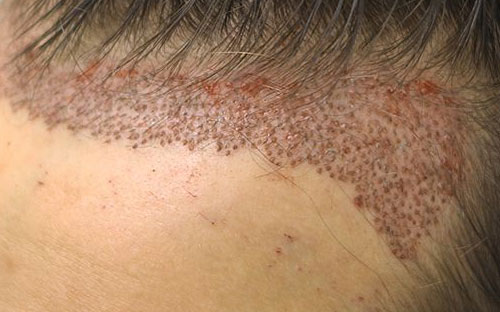Hair loss is a common concern for both men and women. While hair transplant Ajman offer a permanent solution, they might not be suitable for everyone due to cost, recovery time, or personal preference. Thankfully, several non-surgical hair restoration alternatives are available in Ajman and Fujairah, offering effective ways to combat hair thinning and promote hair growth.
Understanding Hair Loss Causes:
Before exploring solutions, it's crucial to understand the underlying cause of hair loss. Common factors include genetics (male/female pattern baldness), hormonal changes, stress, nutritional deficiencies, and certain medical conditions. Consulting a dermatologist in Ajman or Fujairah can help diagnose the cause and recommend the most suitable treatment plan.
Non-Surgical Hair Restoration Options:
Here's a closer look at some popular non-surgical hair restoration options available in Ajman and Fujairah:
Low Level Laser Therapy (LLLT): This treatment utilizes low-level lasers to stimulate blood circulation in the scalp, potentially promoting hair growth and strengthening existing hair follicles.
Platelet-Rich Plasma (PRP) Therapy: PRP therapy involves extracting a patient's blood, concentrating the platelets rich in growth factors, and injecting it back into the scalp. This may stimulate hair follicle regeneration and improve hair density.
Scalp Microneedling: This minimally invasive technique involves using a microneedling roller to create tiny punctures in the scalp. This triggers the body's natural healing process, potentially increasing blood flow and promoting hair growth.
Minoxidil: This topical medication is available over-the-counter and is often the first line of defense against hair loss. It helps slow down hair loss and may even promote some regrowth.
Finasteride: This prescription medication is typically used by men to treat male pattern baldness. It works by blocking the conversion of testosterone to DHT, a hormone that contributes to hair loss.
Nutritional Supplements: Certain vitamins, minerals, and antioxidants like iron, biotin, zinc, and omega-3 fatty acids may support healthy hair growth when dietary intake is insufficient. Consulting a healthcare professional can help determine if supplements are necessary.
Scalp Cleansers and Shampoos: Using shampoos and cleansers specifically formulated for hair loss can help remove DHT buildup from the scalp and create a healthier environment for hair growth.
Stress Management: Chronic stress can contribute to hair loss. Techniques like meditation, yoga, and exercise can help manage stress levels and potentially improve hair health.
Scalp Massages: Regularly massaging the scalp can increase blood flow, which may nourish hair follicles and promote growth.
Healthy Diet: Maintaining a balanced diet rich in essential nutrients like protein, vitamins, and minerals is crucial for overall health, including hair health.
Choosing the Right Non-Surgical Treatment:
The best non-surgical hair restoration approach depends on the cause and severity of hair loss, individual medical history, and desired outcomes. Consulting a qualified dermatologist or trichologist (hair loss specialist) in Ajman or Fujairah is vital for a personalized treatment plan.
Additional Considerations:
Realistic Expectations: Non-surgical treatments often take time to show results, typically several months. Consistency with the treatment plan is key.
Combination Therapy: Combining multiple non-surgical approaches may be more effective than relying on one method alone. A dermatologist can recommend the best combination for your specific needs.
Long-Term Maintenance: While some non-surgical methods offer lasting results, some require ongoing use for continued benefits.
Conclusion:
Hair transplant recovery is a crucial phase for achieving successful results. By following these recovery tips shared by clinics in Ajman and Fujairah, you can ensure optimal healing and maximize the growth potential of your transplanted hair. Remember, patience and proper care are key to enjoying the long-lasting benefits of a hair transplant.





Comments